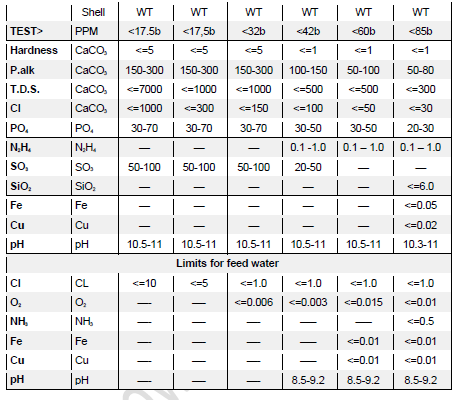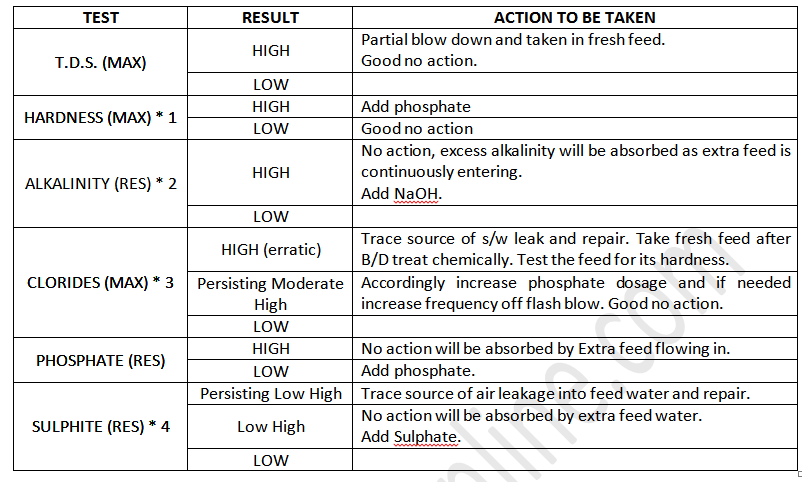Q) Explain why regular testing of water in Auxiliary Boilers is desirable.
Ans:- Boiler water tests are tests to find a particular chemical compound or excess chemical compound in the boiler water. If you do the boiler water test correctly and regularly you can find excess compound or impurities in the boiler water and prevent following factors:-
- Prevent corrosion in the boiler feed system by maintaining the boiler water’s alkaline condition.
- Prevent scale formation in the boiler tubes.
- Remove dissolved gases such as oxygen from water.
- Control sludge formations which prevent carry over with the steam.
- Determine the amount of impurities by which we can select appropriate treatment.
- Exercise careful control over boiler treatment chemicals.
- Maintain and provide residual reserve of chemicals.
- Improve efficiency, thus increasing boiler life and service period of boilers.
- For economical operation of boiler.
Q) For each test normally carried out, state – Reasons for making the test.
Ans: – Different Boiler Water Tests and its Purpose:
- Hydrate Alkalinity – For testing the presence of hydrates.
- Condensate PH – Measuring the acidity or alkalinity of the water.
- Chloride ppm CI Test- measure the chlorine content or sea water presents.
- Phosphate – For testing the presence of phosphate compounds. It is important to maintain minimum of 10 ppm of phosphate.
- Deha/Oxygen test – For testing oxygen and Chemical content.
- Neutralized Conductivity – For testing the presence of ferrous ions and metal contents.
- Feed Water Hardness – For testing the presence of carbonate compounds.
Q) For each test normally carried out, state – Acceptable values for any particular type of auxiliary boiler.

Q) Action required when measured values differ appreciably from desired values.
Ans:- When measured values differ from acceptable standards, a corrective action chart is to be referred and suitable action taken accordingly. This chart is reproduced:-
